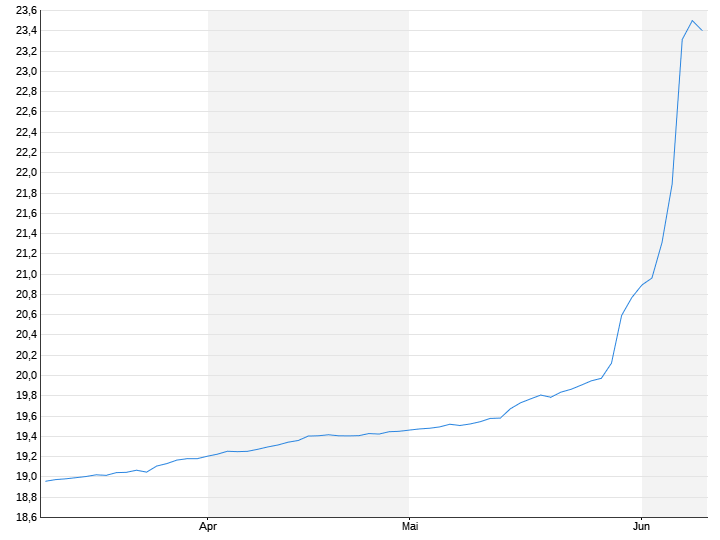The currency is in free fall and inflation is raging. Turkish President Erdogan wants to get the situation under control with a new head of the central bank. But skepticism prevails on the financial markets.
Sahap Kavcioglu was not really successful. On the contrary. While inflation in Turkey was through the roof and the national currency, the lira, plummeted, the head of the central bank, with the consent of the president, poured fuel on the fire and lowered interest rates. Now, a few days after the start of his third term, Recep Tayyip Erdogan is pulling the emergency brake and replacing Kavcioglu with a former US banker: Hafize Gaye Erkan should get the situation under control.
The new boss is treated as a representative of the prevailing economic doctrine. The 41-year-old, who was born in Istanbul, studied industrial engineering in the Turkish metropolis. After graduating, she studied at the US elite university Princeton with a focus on finance and financial mathematics and received her doctorate there. After that she was, among other things, head of a New York real estate financier. She later served as a senior analyst at investment bank Goldman Sachs for nine years. She then became co-chair of Bank First Republic. She left the company at the end of 2021. First Republic had fallen into a severe crisis last spring, was placed under receivership and sold to JPMorgan Chase.
Now the Turkish central bank has new leadership in her for the fifth time in just four years. The reason Kavcioglu didn’t have to leave long ago has a name: Erdogan. The President describes himself as an “interest enemy” and sees interest as the “mother of all evils”. Contrary to past experience and economic theory, Erdogan has argued that low interest rates mean low inflation and high interest rates mean high inflation.
In order to enforce this unorthodox monetary policy, Erdogan fired several central bank governors and finance ministers. In Kavcioglu he found a central bank governor who fulfilled his wish for low interest rates. Last year, the head of the Statistics Office, Sait Erdal Dinçer, had to go. Erdogan had accused him of exaggerating the extent of the inflation.
The interest rate decision is approaching
The loose monetary policy fueled inflation and the currency crisis, but at the same time ensured economic growth – a major reason for Edogan’s popularity with his voters. The head of state is likely to have assumed that record inflation and the lira crash were temporary and only collateral damage on the way to his re-election.
In fact, inflation is off record levels – but it’s still very high. According to official figures, general inflation shot up to 85 percent last year. This May it was just under 40 percent. On the other hand, the fall of the lira continues unabated. It’s down around 25 percent against the dollar since the start of the year, having already hit the road in 2021 and 2022. The question now is: will the Turkish central bank, under Erkan’s leadership, actually tighten monetary policy and raise interest rates?
Erkan’s appointment could indicate that Erdogan is making an economic policy turnaround after his election victory. Another indication: the president has appointed the economist Mehmet Simsek as the new finance minister. The economist has announced that his country is returning to “rational principles” in economic and financial policy. The decisive factor will be what room for maneuver Erdogan will allow the head of the central bank and the finance minister. There may be more clarity on June 22 – the Turkish central bank will then decide on an interest rate hike.
The financial markets are meanwhile skeptical. Despite Simsek’s appointment, the Turkish lira plummeted even further. It fell to another record low this Friday after Erkan’s appointment.
